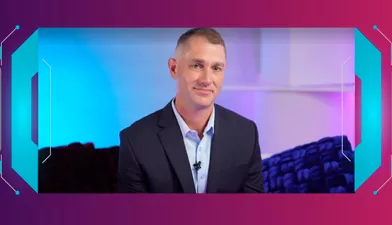On demand | Elevate 2021
Corporate contracts ready to book in one day
CASE STUDY • EXPRESS CONTRACTS
Corporate contracts are fundamental for most airlines and their partners. But far too often, they are fraught with painful workflows that lead to lost revenue opportunities, coding errors, and frustrated corporate customers.
Express Contracts provides touch-free, end-to-end automation of corporate, private contracts, creating bookable fares quickly to the delight of customers and airlines sales teams. It requires only minimal fare filing expertise and it connects with your contract management system (CMS) to automatically send contracts to ATPCO to be published.
Over 90% of contracts filed in Express Contracts are in the market within 2 hours
United Airlines faced frustrated customers and sales teams because it took a long time to bring new contracts to market.
The pandemic provided an unexpected opportunity to experiment with automating the process of filing corporate contracts, which yielded extremely positive results.
“Our sales team is thrilled that we’re able to go from waiting those days or weeks...to get fares filed to something that is generally much faster, usually same day.”
—Glenn Hollister, United Airlines
Narrator
It can take important weeks to organize and translate airlines’ negotiated and corporate contracts into coded data that gets fares into the market. But automation is here, and what used to take weeks now can take hours.
Learn how United Airlines used Express Contracts to change the game for their sales team, and discover how your contracts can become bookable fares in minutes.
Swati
Good morning, good afternoon, and good evening, everyone. Thank you all for joining us for today's session on contract automation and the ability to create a touch-free, end-to-end, fully automated workflow for your private programs. We are so excited to have Glenn Hollister, vice president sales strategy and effectiveness from United Airlines. He is going to be sharing with us his insights in working with Express Contracts and the value it has delivered to them, but first, let's do a quick introduction for Express Contracts.
Some of the key challenges that are being witnessed with the current workflows for contract management is the long lead time between contract signature and getting the fares in market. Additionally there are very few subject matter experts available that really, truly understand the fare filing complexities. The struggle to efficiently get the contracts met with the renewal deadlines. All these result in missed revenue opportunities, unintended coding errors, and ultimately impact your customer relationships.
ATPCO in partnership with Volaro developed Express Contracts to automate the creation, update, and management of your contract data to ATPCO. This enables your contracts to be available within market in a matter of hours.
Once integrated, Express Contracts requires minimal fare filing expertise. It is available 24/7 across global time zones. And it offers scalability, enabling you to maximize revenue potential when the market conditions improve. Express Contracts delivers significant value by remarkably improving the time to market. It reduces both coding errors and the manual coding costs. Overall, it helps improve your customer relationships and stay ahead of your competition.
But now we want to hear from you. On the side of your screen, you will see a small pop-up if you can take a minute and tell us which of these pain points resonate with you for your private programs. Thank you for doing that.
So we talked about the speed to market with automation and what does that look like in numbers. Well, data shows us that over 90 percent of the contracts filed are within market in two hours. Now that's incredibly fast, as compared to the weeks and days it takes in the current workflows. Creating a touch-free workflow got even easier with the Express Contracts API. This fire-and-forget API can be easily integrated with your existing contract management system and can let your sales team send the data directly to ATPCO, and automation takes care of the rest.
For airlines that prefer a more hands-on approach, the standardized spreadsheet is a better suited option.
Express Contracts has continued to evolve over the years and now supports a variety of programs ranging from corporates to leisures, specialty and more.
The most common categories and record types have been enabled within Express Contracts and we continue to add more. Don't know what these are, that's okay. Express Contracts takes care of the complexities so that your teams can simply update that information in the contract management system, and automation takes care of the rest.
To recap, Express Contracts delivers significant value by improving speed to market dramatically and helps you realize your revenues faster.
And now it's time to welcome Glenn Hollister from United Airlines. Hello, Glenn, and a very warm welcome to you, and thank you for taking the time today to join us for this session of Elevate 2021.
Glenn
Well, thank you, Swati, and I’m glad to be here and thank you for the opportunity to talk with everyone today.
Swati
Wonderful. So let's start with the basics. Glenn, can you tell us a little bit about your role at United Airlines?
Glenn
Sure, so my role, I like to describe it as I’m everything B2B that's not a salesperson. So we have a sales team that calls on primarily corporations and travel agencies, and I’m responsible for everything that is needed to make them successful. So that includes our B2B marketing, our products, our pricing team for those products, the service on those products, the systems behind those products.
In addition, I’m also responsible for the commercialization of our distribution through all different types of distribution channels. So that's really what my team does and that kind of leads to why I was interested in Express Contracts.
Swati
Wonderful, sounds like you have your hands full. So can you share with us what are some of the pain points that you were trying to overcome that led you to Express Contracts?
Glenn
Sure, and I think you really hit on the main ones when you were talking about Express Contracts. So for us, the thing that initially got us interested in Express Contracts was the idea of really drastically reducing the time from when a contract is signed to when the fare is filed. That is something that we heard about both from our customers and from our sales team, that it was taking too long. Customers were frustrated, they weren't sure, the sales people would be getting these phone calls or emails like, are the fares there yet, are they there yet, right? So that's that was the number one reason.
That really predated the pandemic when we started looking at that issue. And then through the pandemic the second issue that really came up, you touched on, is just a lack of experts in this space. And I have to say that I feel really fortunate here at United that we have a fantastic fare filing team. Some of the folks that, some of the issues you mentioned around quality and things like that I've been very fortunate I've not had to deal with those at all. But unfortunately through the pandemic, like all other parts of our airline, the fare filing team got a little smaller, which puts more pressure on how do we get access to that expertise and how do we get to a decent responsiveness to our customers.
Swati
And that's something we are seeing across the board, across the industry, that the industry looks different now, pandemic with the migration or the loss of the expertise. So that makes sense. Thank you for sharing that.
Can you walk us through a little bit about how did you approach contract automation?
Glenn
Sure, so the contract automation, at a very high level, we have, you can think of private fares as being in a few different areas. One is corporate, the other’s agency, and you can also look at them, as in the case of United, as being either domestic or international. And for those who are familiar with domestic US fare filing, that has kind of its own set of intricacies and ways of doing things that are different than the way we file internationally.
Internationally, obviously we have a number of joint venture partners and we have to do things in a very synchronized way to make sure that the promise of the joint venture is actually realized when someone goes to buy a ticket.
So we really think of those as kind of our four areas of fare filing, between agency domestic, or agency corporate, and international and domestic. So when we started thinking about what we wanted to do, the first thing that was clear was that we would focus on corporate first. And that's just because that's where this real feedback that we were getting on, if you will, time to market for a new contract, that's where we're really hearing it the loudest. It's also potentially a somewhat smaller area, at least on a filing-by-filing basis.
Swati
And that's our recommendation as well. Always start with something smaller and then you can scale. Once you get the simpler standardized contracts through, then it's easier to deal with the more complex one. So absolutely that makes perfect sense. You touched upon something that actually I wanted to get into a more strategic question. You said you started with corporates, and data is pointing to the fact that business travel is slower coming back as compared to leisure. So what prompted you to consider an Express Contracts integration at this time, you know, while things are slow?
Glenn
Sure, so I think first of all, as I mentioned, we were looking at this before the pandemic started, but I think in some ways the pandemic actually gave us a window of opportunity, where we weren't doing a lot of corporate fare filing. Most of our corporations, when their deals came up, just extended the existing deal which is obviously really simple fare filing, to extend it. Right. So we, the volume of really new stuff we were doing was much lower than normal, and that gave us kind of a window of opportunity to do things that we ordinarily would not have had, we would have had to kind of change the tires on the car as it was going down the road. And here maybe we got to pull the car over on the side of the road at least for a few minutes. So we'll make that a very quick pit stop and get you back on the road racing very soon. So that's fantastic, thank you for sharing that. I'd love to hear more about what has been the feedback that your team has shared with you once Express Contracts has been integrated, you know, from the users, and any thoughts.
And again, we haven't rolled this out even across all of our corporate yet, we've really picked just a couple of use cases, but those are use cases that I think are, at least one of them is quite visible to our sales team, and I think they're thrilled that we're able to go from waiting those days or weeks that you mentioned to get fares filed to something that is generally much faster, usually same day. And that is really a nice win in their hat and they're starting to get to a point where they feel comfortable telling customers about how fast a contract can be turned on.
Swati
Yeah, and I’m sure your customers are happy to hear that contracts can be in market with a matter of two hours, so that should keep your sales teams also happy. And lastly, just wanted to get a sense of where do things stand, what does the future look like for United and Express Contracts? Any plans or anything you want to share with us?
Glenn
Sure, so you know when we built out our initial Express Contracts process here, we said what kind, in addition to the categories, or I mentioned, we really said, well there are different reasons we fare file and there's really two. One is there's a new contract, it's either a brand new customer or it's a customer who signed a very different kind of deal, and then the second is what I might call an incremental or an ad hoc kind of filing, where maybe we've added a new product in a market and we need to file for it or we're adding some city pairs to an existing contract.
So when we initially built this, we built this for one product and one specific kind of incremental filing. And so where we're at right now is understanding how do we expand to the rest of our products and the rest of our incremental filing use cases.
Swati
Wonderful, that makes sense. Again, start slowly and then expand as you learn more. So thank you for sharing that.
Lastly, I’m just going to wrap up today's session with a couple of questions that we get asked about Express Contracts, but before I do that, Glenn, is there anything you want to share with us before I wrap up?
Glenn
You know, I would just say that for those who are thinking about, how do I do more with less, automation I think is in general often part of the answer.
And if you're looking at this part of your business and how do I get things in market faster, then you should certainly look at Express Contracts as a way to possibly bring some automation in without having to build everything from the ground up.
Swati
Wonderful, thank you for that. And as I wrap up, I just wanted to address a couple of questions that we keep hearing frequently with regards to Express Contracts, and so I thought this was a great opportunity to cover those.
One of the ones we hear most often is what kind of contract management system or CMS does Express Contracts work with? Do I have to have a CMS? To answer the first part, it works with a variety of CMSs. It works with Prism, Salesforce. If you have a internally developed system as well, it can be easily hooked up. If you don't have a contract management system, our partners over at Volaro have just introduced Fare Hub. That is the first contract management system to be directly integrated with Express Contracts. So I definitely encourage, if you are considering upgrading your contract management system or switching it out for a new system, please do consider that.
Our second question we hear most frequently is, being ATPCO, what are the trends that we are seeing in terms of automation adoption?
And Glenn actually touched upon that. This is actually the time that we are seeing an increased interest and engagement and investment in automation by airlines across the board, be it large international carriers or smaller domestic ones. So as the industry re-emerges, automation is going to continue to play a crucial role in recovery.
So with that, I want to thank you, Glenn, for joining us today and sharing your insights. We really appreciate you taking your time. And for our audience, if you have more questions, please feel free to reach out to our regional sales directors.
This session is going to be recorded and going to be made available, and if there are any other resources that you would like, please feel free to get in touch with us. Until later, stay safe, be healthy, and be happy. Thank you.
Speakers
Swati Sharma
Manager, Integrations, ATPCO
As Integrations Manager at ATPCO, Swati drives engagement, adoption, and integration of automation solutions for airlines. Swati joined ATPCO in 2018 from the media industry where she also worked in integrations for OTT platforms. She has a deep background in marketing and working with customers to solve their pain points. Swati lives in Northern Virginia and loves traveling, cooking, and spending time with her family and new puppy, Picasso.
You might also like



